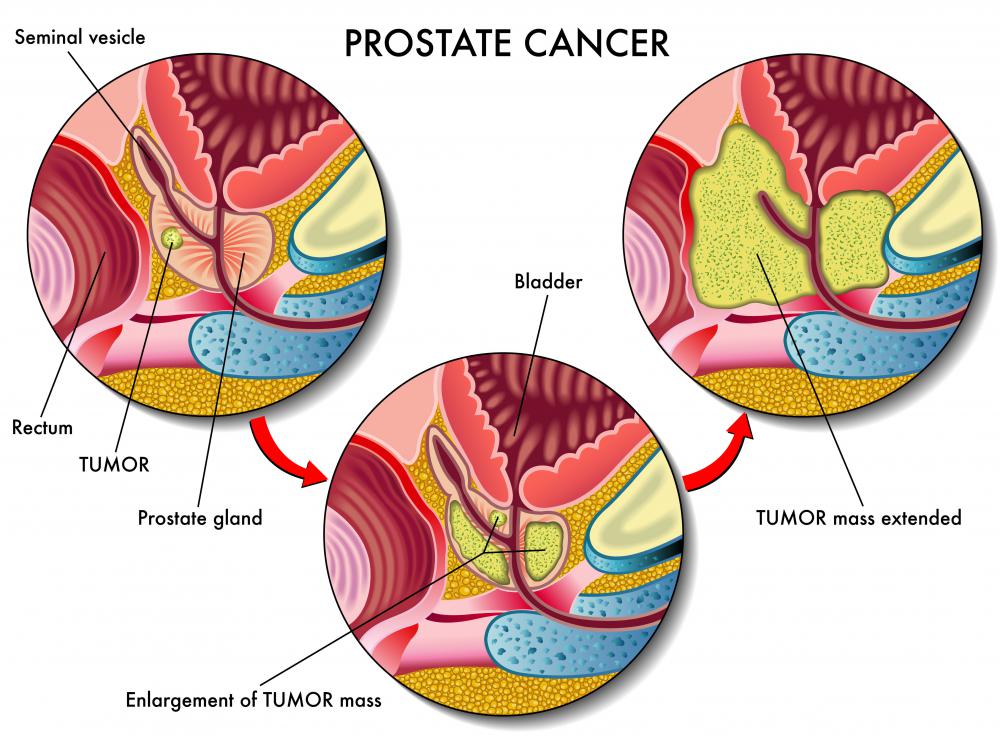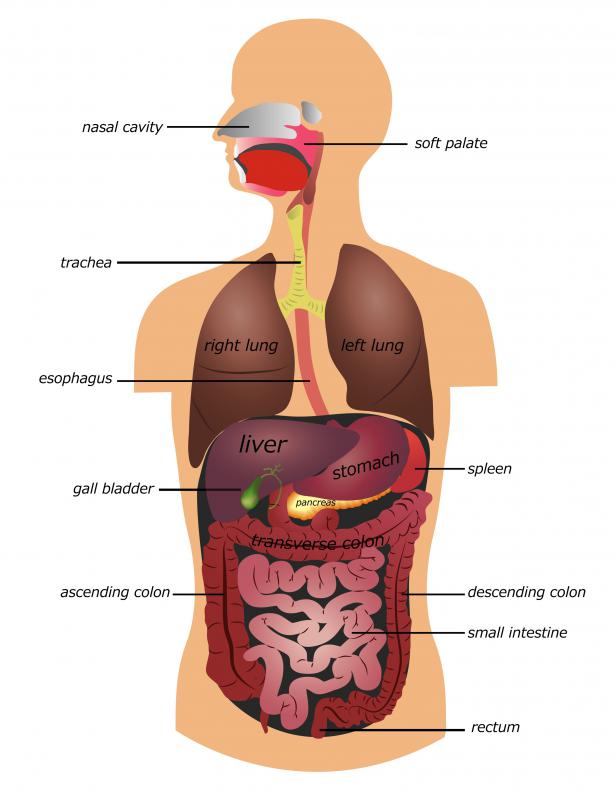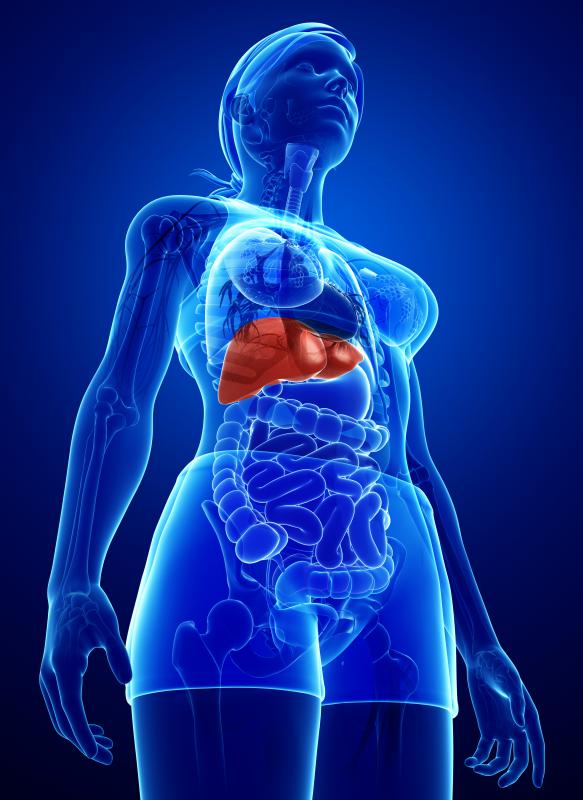At AllThingsNature, we're committed to delivering accurate, trustworthy information. Our expert-authored content is rigorously fact-checked and sourced from credible authorities. Discover how we uphold the highest standards in providing you with reliable knowledge.
What Is Vitamin K3?
Vitamin K3, also known as menadione, is a synthetic supplement that acts as a precursor for vitamin K2, the most useful form of vitamin K for the human body. Since menadione does contain some vitamin K activity, it is commonly placed in livestock feed and some pet food to increase nutrient content. The use of vitamin K3 supplements in most developed countries is banned due to its possible side effects, such as damage to internal organs like kidneys or liver. Research on vitamin K3 has shown that it has some effect in combating certain types of cancer, yet research in regards to human safety remains inconclusive.
Menadione is a form of synthetic vitamin K, often sold in supplemental form for its vitamin K-promoting activity. The synthetic version of vitamin K is often called vitamin K3, after its natural forms vitamin K1, found in leafy green vegetables, and vitamin K2, which is synthesized from bacteria. Although vitamin K is needed by the body in large amounts for adequate bone and blood health, the K3 version may not be a suitable alternative for humans. Safety concerns include damage to internal organs such as the kidneys and the liver.

Although menadione for human consumption is banned in most economically developed countries, it is still used in animal feed to help boost nutrient quantity. Some critics propose that K3-induced organ damage can occur in animals, as well, yet research remains inconclusive. K3 vitamins are sometimes found in dog food, as well as livestock feeds, as a cheaper alternative to the natural forms of vitamin K, like vitamin K1 and K2. Animal owners seeking to avoid the synthetic form of this vitamin often opt for natural or organic pet food, containing only naturally derived vitamins and minerals.

Continued research on vitamin K3 has shown that it may have some anti-cancer benefits, especially if combined with vitamin C. The internal effects on other aspects of health, such as the lungs, kidneys or liver, have yet to be determined, and many researchers do not know the full benefits it may have to human health. Some types of skin cancer may be treated or prevented with a topical form of vitamin K3, yet this has not been proven. Almost all research on cancer prevention with menadione shows inconclusive results, but does show promise in future prevention or treatment strategies for skin or prostate cancers.

If you are in Dallas and want to explore the topic of vitamin K3 and its potential effects on health, consider consulting with Dallas dietitians. These nutrition experts can provide personalized advice and guidance on the use of supplements, including vitamin K3, and its potential impact on overall well-being.
Frequently Asked Questions
What is Vitamin K3 and how does it differ from other forms of Vitamin K?

Vitamin K3, also known as menadione, is a synthetic version of vitamin K that differs from natural forms K1 and K2 in its structure and function. While K1 (phylloquinone) is found in leafy greens and K2 (menaquinone) in fermented foods and produced by gut bacteria, K3 is not naturally occurring and is used primarily in animal feed and some supplements.
Is Vitamin K3 safe for human consumption?

While Vitamin K3 has been used in supplements, its safety for humans has been questioned. The FDA has restricted its use due to potential toxicity and oxidative damage to cell membranes. It's generally recommended to obtain Vitamin K from natural sources like K1 and K2 for human consumption.
What are the primary uses of Vitamin K3 in animal nutrition?

Vitamin K3 is commonly used in the animal feed industry to ensure adequate Vitamin K intake, which is essential for blood clotting and bone metabolism. It's particularly used in situations where animals might not have enough access to Vitamin K through their diet or when they require higher amounts, such as during rapid growth or egg production.
Can Vitamin K3 be used to treat Vitamin K deficiencies?

Vitamin K3 can be used to treat Vitamin K deficiencies in animals, as it is an effective and cost-efficient way to quickly replenish their Vitamin K levels. However, for humans, Vitamin K deficiencies are typically addressed with K1 or K2 supplements, which are considered safer and more effective.
Are there any risks associated with Vitamin K3 supplementation in animals?
While Vitamin K3 is effective in preventing and treating deficiencies, there can be risks if used improperly. Over-supplementation can lead to toxicity, and there are concerns about its potential to cause oxidative damage to cells. It's important for animal diets to be carefully managed to avoid these risks.
How does the body metabolize Vitamin K3 compared to K1 and K2?
The body metabolizes Vitamin K3 differently than K1 and K2. K3 is converted into active forms of Vitamin K in the liver, but this process can produce free radicals, which may lead to oxidative stress. In contrast, K1 and K2 are directly utilized by the body's tissues without this intermediary and potentially harmful step.
AS FEATURED ON:
AS FEATURED ON:

















Discuss this Article
Post your comments